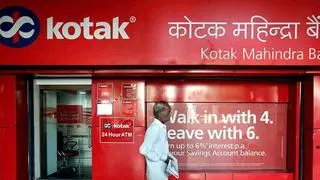The Reserve Bank of India (RBI) has decided to further rationalise the Supervisory Action Framework (SAF) for Urban Co-operative Banks (UCBs) to make the framework more effective in bringing about the desired improvement in these banks. It also seeks expeditious resolution of UCBs experiencing financial stress.
The SAF entails initiation of corrective action by UCBs and/or supervisory action by the Reserve Bank on breach of the specified thresholds (triggers) in respect of the specified financial parameters/indicators.
The SAF envisages, in the initial stage of deterioration in the financial position, self-corrective action by the management of the UCBs and supervisory action by the RBI in case the financial position of the bank does not improve.
Asset quality
When it comes to asset quality, the RBI said a UCB may be placed under SAF when its net non-performing assets (NNPAs) exceed 6 per cent of its net advances.
Depending on the severity of stress, the RBI may take action such as: advising the UCB to submit a board-approved action plan for reducing Net NPAs below 6 per cent; advising the board of directors of the UCB to review the progress under the action plan; restriction on declaration/payment of dividend/donation without prior approval of the RBI; curtailment of sanction/renewal of credit facilities to sectors/segments having high proportion of NPAs/defaults; reduction in exposure limits for fresh loans and advances; and restriction on fresh loans and advances carrying risk-weights more than 100 per cent.
When it comes to profitability, the RBI said a UCB may be placed under SAF when it incurs losses for two consecutive financial years, or has accumulated losses on its balance sheet. Depending on the severity of stress vis-a-vis profitability, the RBI may take action such as: advising the UCB to submit a board-approved action plan for restoring the profitability and/or wiping out the accumulated losses; advising the board of directors of the UCB to review of progress under the action plan; prohibition on declaration/payment of dividend/donation; restriction on incurring capital expenditure beyond a specified limit, without prior approval of the central bank; and measures for reduction in interest and operating/administrative expenses.
When it comes to Capital to Risk-weighted Assets ratio (CRAR), the RBI said a UCB may be placed under SAF when its CRAR falls below 9 per cent.
Depending on the severity of stress vis-a-vis CRAR, the RBI may take actions such as: advising the UCB to submit a board-approved action plan for increasing the CRAR to 9 per cent or above within 12 months; seeking a board-approved proposal for merging the UCB with another bank or converting itself into a credit society; prohibition on declaration/payment of dividend/donation; restriction on expansion of size of the balance sheet; and restriction on fresh borrowings, except for meeting temporary liquidity mismatches.
The RBI said the revised SAF will be implemented with immediate effect. Supervisory action already taken under the earlier SAF will be reviewed and revised instructions, if any, and will be issued to the UCBs concerned.







Comments
Comments have to be in English, and in full sentences. They cannot be abusive or personal. Please abide by our community guidelines for posting your comments.
We have migrated to a new commenting platform. If you are already a registered user of TheHindu Businessline and logged in, you may continue to engage with our articles. If you do not have an account please register and login to post comments. Users can access their older comments by logging into their accounts on Vuukle.